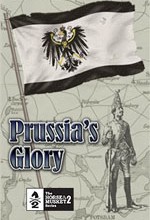It was through his military leadership that Prussia became such a powerhouse, defeating the armies of Austria, Russia, and France in the true first world war, the Seven Years War, that began in 1756. Hints of Prussia's greatness though were first evident shortly after Frederick ascended to rule Prussia, when he invaded and occupied Silesia, although it would not be until 1748 that Prussia gained total control over the region. In fact, at the end of his reign Prussia had increased almost fifty percent in size from the area it occupied at the start of his rule, with an increase of over four million more citizens living in Prussian territory.
Like other military geniuses throughout history even today Frederick's teachings and experience with warfare are still studied. While times have changed, and so have the weapon systems, the core ideas are timeless. From the importance of logistics, to combined arms warfare (a tad different since the tank has long since replaced the horse), to the role of the ultimate fighting machine in any war, the infantryman, Frederick the Great's experiences are a testament to the role of good leadership and excellent tactical knowledge.
The second in the award-winning Horse and Musket 2 series, Prussia's Glory, brings to your monitor five important battles of Frederick the Great, showcasing his military genius between the years of 1745 and 1760. The five battles include Soor, Lobositz, Hochkirch, Torgau, and arguably the most famous battle of Frederick's military career, Leuthen. It was at Leuthen that the Prussians, numbering only 35,000, fought against an Austrian army consisting of nearly 65,000 troops under the command of Prince Charles of Lorraine. Thanks to Frederick's military mind, the Prussians actually routed the Austrians, suffering only 6300 killed and wounded, while the Austrians lost over 22,000 killed and another 12,000 captured.

Comments are closed.